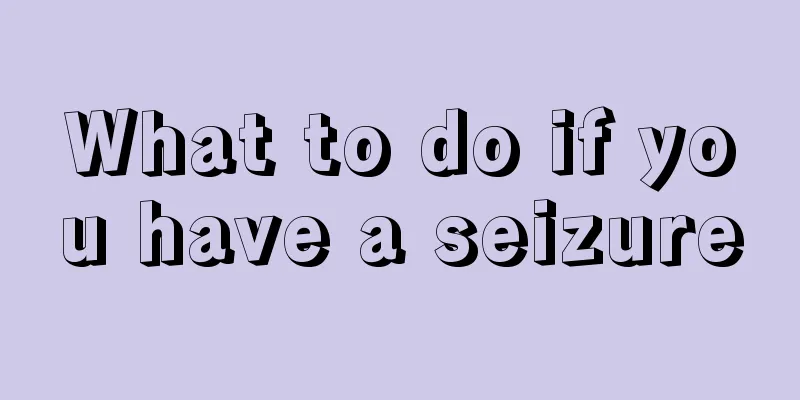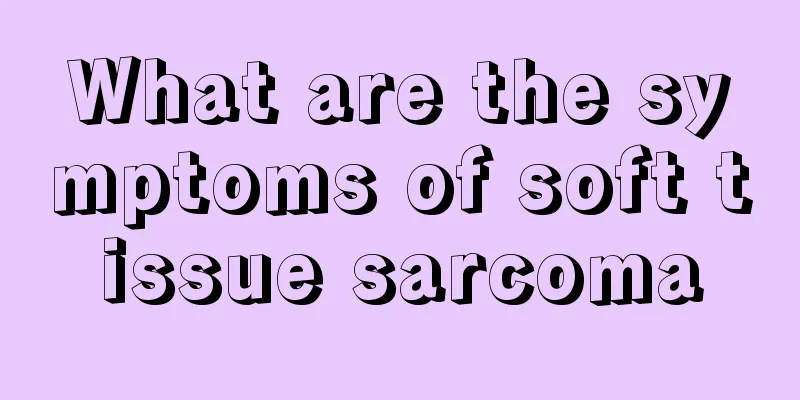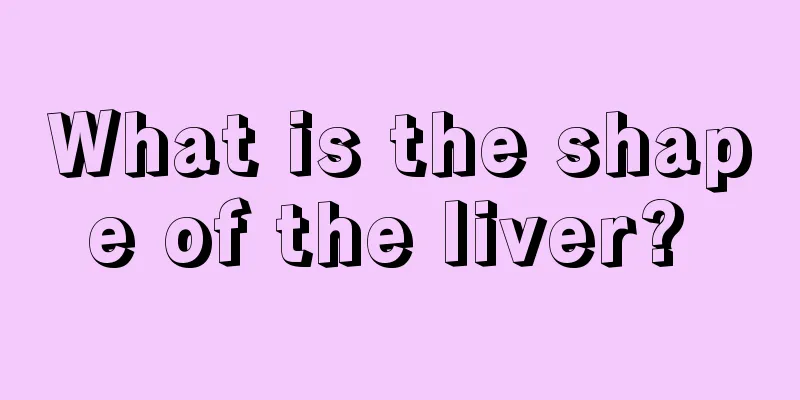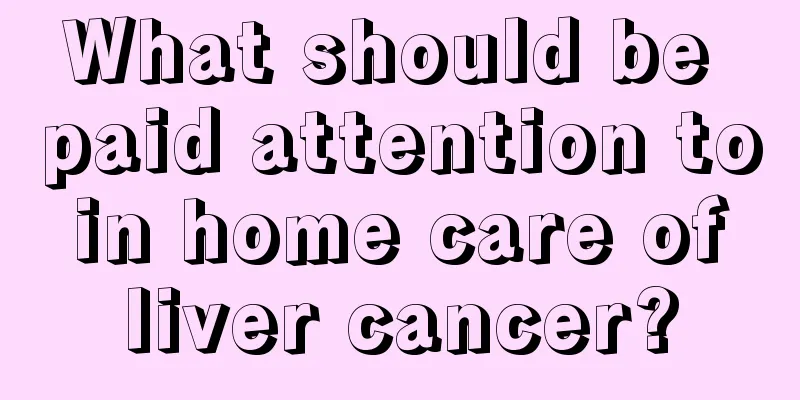What to do if you have a seizure

|
Many people may have encountered convulsions, which is a situation in which the human body suddenly faints. There are many reasons for this situation. It may be caused by an epileptic seizure, a malfunction of the neurons in the human brain, or a malfunction of the central nervous system. Convulsions require people to take timely measures to deal with them. Here is what to do if you have a convulsion. A convulsion is an involuntary single or continuous strong contraction of any skeletal muscle in the body caused by an organic or functional abnormality of the central nervous system. The patient presents with sudden loss of consciousness, upward rolling of the eyes, tonic or clonic twitching of the limbs and trunk muscles. The attack may last from a few seconds to a few minutes. In severe cases, the attack may recur or even be persistent. This symptom is mainly caused by the sudden excessive and chaotic discharge of brain neurons, which causes intermittent dysfunction of the nervous system. There are many causes of convulsions. Although a grand mal seizure of epilepsy manifests as convulsions, we must not equate convulsions with grand mal seizures and delay the diagnosis and treatment of other diseases. The following is a brief introduction to the common causes of convulsions: 1. Febrile convulsions: The most common cause of pediatric convulsions, which is more common in children under 3 years old. Because the brain and nervous system are not yet fully developed, they cannot effectively regulate various parts of the body under high fever conditions, so convulsions may occur when the body temperature exceeds 39°C. The main cause of high fever in children is infection, such as colds, pneumonia, acute suppurative tonsillitis and intracranial infection. 2. Grand mal seizure: It is a common cause of convulsions in adults, and the patient usually has a history of epileptic seizures. The clinical manifestations are that the patient suddenly screams, loses consciousness and faints, and has muscle rigidity and convulsions all over the body, accompanied by incontinence and foaming at the mouth. The patient can wake up on his own after a few minutes. After waking up, the patient suffers from fatigue, drowsiness, body aches, etc. 3. Tetanus: caused by the patient being infected with Clostridium tetani. All patients had a history of injury before the onset of the disease, and the wounds were deep and contaminated. About a week after the injury, he suddenly had a seizure, with clenched teeth, a wry smile on his face, and opisthotonos (the back muscles were rigid and stretched backward). Even the slightest stimulation can induce a seizure in the patient. This disease is also seen in improper disinfection of the umbilical wound of newborns. 4. Hypocalcemia: Major convulsions rarely occur, mainly manifested as convulsions of the hands and feet. During an attack, the hands are shaped like eagle claws, the feet are climbing, and the knee and hip joints are flexed. Hypocalcemia in children is mostly due to vitamin D deficiency. In addition to intermittent attacks of hand and foot cramps, there are also symptoms of calcium deficiency such as pigeon chest, bald spot on the back of the head, irritability, night terrors, etc. Calcium deficiency in adults is more common in the elderly, but it generally does not lead to convulsions. Sometimes, hypocalcemia can be caused by mistakenly removing the parathyroid glands during thyroidectomy. 5. Central nervous system diseases: Encephalitis and meningitis caused by various pathogens, such as Japanese encephalitis, tuberculous meningitis, viral encephalitis, epidemic meningitis, etc. can all cause convulsions. The occurrence of convulsions is mainly due to central nervous system lesions that destroy the regulatory function of the nervous system. 6. Other causes: Under certain conditions, hypoglycemia, dehydration, heart disease, liver disease and lung disease may lead to convulsions. : : : : : : : : : : : : : : : : : : : : : : : : : : : : : : : : : : : : : : : : : : : : : : : : : : : : : : : : : : : : : : : : : : : : : : : : : : : : : : : : : : : : : : : : : : : : : : : : : : : : : : : : : : : : : : : : : : : : : : : : : : : : : : : : : : : : : : : : : : : : : : : : : : : : : : : : : : : : : : : : : : : : : : : : : : : : : : : : : : : : : : : : : : : : : : : : : : : : : : : : : : : : : : : : : : : : : : : : : : : : : : : : : : : : : : : : : : : : : : : : : : : : : : : : : : : : : : : |
>>: Anxiety and fast heartbeat
Recommend
Is it good to drink honey water when exercising
Although people nowadays have a better living sta...
Is it harmful to boil hot water repeatedly?
I believe everyone should know that if you only d...
What are the treatment principles for primary liver cancer? Five treatment principles for primary liver cancer
Life is spent with diseases big and small. Primar...
What should I do if my glasses fog up?
In life, we can see people wearing myopic glasses...
Beware of uneven teeth that may cause tongue cancer. How can we prevent tongue cancer?
Tongue cancer usually occurs at the edge of the t...
“Allergic” reaction caused by milk
Milk contains lactose, and two-thirds of the worl...
Which hospital is good for treating prostate cancer
Which hospital is good for treating prostate canc...
Is formaldehyde 012 considered excessive?
Formaldehyde is extremely harmful to the human bo...
3 treatment options for patients with early laryngeal cancer
For patients with early laryngeal cancer and thei...
Does pituitary tumor still need treatment?
Do pituitary tumors still need treatment? Some pa...
How to connect teeth
Some people's teeth do not have a solid found...
Will anal fissure heal after anal dilation? What are the treatment options?
After patients undergo anal dilation surgery, the...
The difference between agar and gelatin
Agar is a jelly powder with good stability and co...
Does drinking tea regularly have an impact on the kidneys?
Tea is a very important material in life and is k...
Rear deltoid stretch
When some complex symptoms occur in the human bod...









